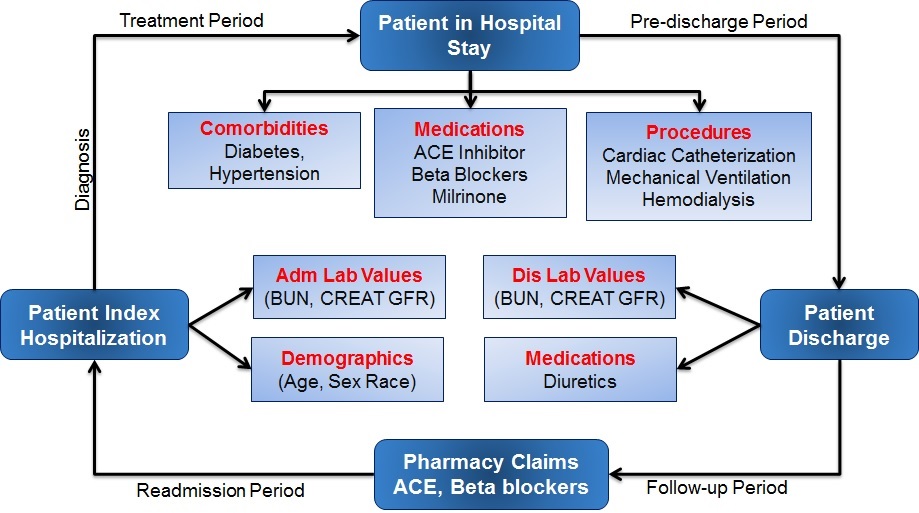Rehospitalization Analytics: Modeling and Reducing the Risks of Rehospitalization

 Forecasting
Forecasting Health Informatics
Health Informatics
| August 15, 2016 – July 31, 2018
Forecasting
Health Informatics
This project provides a comprehensive and accurate assessment of risk of rehospitalization and has the potential to direct more aggressive treatments towards specific high-risk patients.
Hospitalizations account for more than 30 percent of the two trillion annual cost of healthcare in the United States. Experts estimate that as many as 20 percent of all hospital admissions occur within 30 days of a previous discharge. Such rehospitalizations are not only expensive but potentially harmful. Most importantly, they are often preventable. Providing special care for a targeted group of patients who are at a high risk of rehospitalization can significantly improve the chances of avoiding rehospitalization. Estimating the predictive power of the clinical data collected during the hospitalization of a patient and effectively making predictions from such diverse patient records requires new analytical models. This project develops a ‘rehospitalization analytics’ framework that can identify, characterize, and reduce the risks of rehospitalization for patients using a wide range of electronic health records.
The specific research objectives of this project are to develop (1) integrated models that can effectively leverage multiple heterogeneous patient information sources and transfer the acquired knowledge about rehospitalization between different hospitals and patient groups in the presence of only few patient records; (2) novel adaptable time-sensitive models that make predictions of the risk estimates in the presence of inherent concept drifts in the clinical data; (3) new regularization methods that extract the population-specific risk factors effectively despite the presence of multiple correlations and grouped categorical clinical predictors; and (4) privacy-preserving local models at multiple facilities and share the models from each facility to other facilities without revealing any patient-sensitive information. The methods are evaluated using heart failure patient records collected at a major hospital system. The performance of the proposed models is compared against the state-of-the-art statistical and clinical tools that are currently being used for risk prediction.
This project provides a comprehensive and accurate assessment of risk of rehospitalization and has the potential to direct more aggressive treatments towards specific high-risk patients. Accurate and timely predictive models developed in this project could be widely adopted and have national impact on improving the lives of patients by reducing exacerbations and avoiding hospitalization and could reduce overall health care costs by reducing the number of costly hospitalizations. The computational models developed in this project could also be applied to other chronic diseases that have high rates of utilization and could benefit from improved targeting of intervention/resources.
The educational objective of this project is to train the next generation of interdisciplinary researchers in the fields of data analytics and healthcare informatics.
The research findings are disseminated via the project website.

